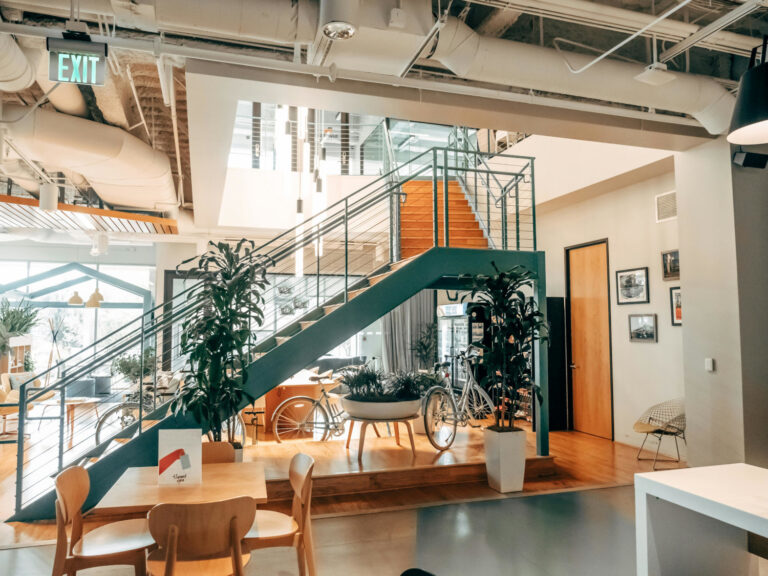To Introduce
In the face of massive global corporations with multimillion pound turnovers, thousands of employees and offices all over the world, SMEs can often feel like they’re a small fish in a big pond. But worldwide, SMEs represent about 90% of businesses and more than 50% of employment. In the UK alone they account for 99% of businesses, with 5.9 million SMEs contributing £2.2 trillion to economy. Collectively, they have the power to drive real change, and this will be vital in tackling the climate change.
At a basic level, SMEs adopting sustainability practices have the potential to influence the actions of millions of individuals. Some 16.6 million people in the UK are employed by SMEs, which are often made up of smaller tight-knit teams where the company’s vision and purpose is easily communicated. Embedding sustainable principles at work encourages employees to adopt climate-friendly actions outside of the workplace, influencing friends and family, too.
The same goes for their customer base. SMEs are often considered more conscious as they are closer to their consumers and therefore more tapped into their sentiments. Consumers are increasingly choosing brands and companies that can demonstrate environmental credentials – more so in recent times as the pandemic and lockdown has driven a newfound appreciation for the natural environment. SMEs’ influence here can’t be overlooked, and it’s a two-way street. Introducing sustainable practices doesn’t just benefit the planet, but it also stands to benefit you. Research from EON, for example, shows that 80% of consumers are more likely to continue buying goods or services from a company if it makes an effort to be climate-friendly, while 78% are more likely to recommend a business to others if they know it’s adopted sustainable practices.
Additionally, sustainability will prove crucial in future-proofing your business by driving both resilience and competitiveness. Aside from ensuring continued custom from an increasingly eco-conscious consumer base, taking steps to build sustainability into your business will help protect it from future economic volatility caused by climate change. Energy prices will rise, materials will become scarcer and more expensive, and – as the government scrambles to hit its climate targets – we will see increasing legislation designed to favour those making the effort, and penalise those that don’t. Indeed, Prime Minister Boris Johnson recently called upon SMEs to strive for net zero by 2050 in order to help the national effort.
All in this Together
Of course, when it comes to balance sheets and employee numbers, you’d be forgiven for thinking larger corporates stand to make more of an impact, but in the climate agenda SMEs and larger companies are inextricably linked, especially as the climate narrative increasingly focuses on businesses carbon emissions. SMEs feature heavily in the supply chains of big companies, many of which are committing to Science Based Targets that require them to decarbonise beyond their own operations.
According to the Science Based Targets Initiative, more than 1,750 major companies are ‘taking action’ on their emissions. Most have Scope 1 (direct) and Scope 2 (electricity) emissions accounted for now, and are concentrating their efforts on Scope 3 – the result of activities from assets not owned or controlled by the reporting organisation. In other words, the emissions from everything associated with their supply chain. Scope 3 emissions account for between 80% and 97% of total emissions for a large business, so hotspots will be dealt with swiftly. If your SME isn’t pulling its weight in carbon reduction, you could lose a valuable chunk of business.
This can all prove a difficult pill to swallow, especially in the wake of COVID-19. The pandemic has left many SMEs in a precarious position, so switching things up now isn’t necessarily on the agenda. Research suggests that the pandemic has made more than two-thirds of SME leaders more environmentally conscious, but just over half say the need to stabilise is holding them back.
However, as the government states in its green recovery plans, we really do have an opportunity here to ‘build back better’, especially taking into account the valuable insight provided by the unprecedented events of the last 18 months. For example, far more people chose to shop locally during lockdown, with up to 80% saying they will continue to do so from now on. This has created an opportunity for SMEs to become the change-makers of the future, with larger corporations now looking at SMEs as genuine competition. Indeed, the inherently flexible, agile nature of SMEs puts them in a much stronger position to implement new ideas and practices, as they have less complicated structures than bigger businesses. This agility means that SMEs can actually get ahead of larger corporates, and can act as inspirational sustainability leaders within their wider industries.
It’s clear that SMEs can no longer take a ‘business as usual’ approach to things, and in this case, size really doesn’t matter. SMEs will be no more immune to the effects of climate change than their corporate counterparts, and their sustainability efforts are just as, if not more, important. Together, SMEs are an economic force to be reckoned with, and one that will prove instrumental in the increasingly urgent climate narrative.





